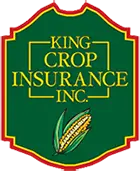You have several options on how you divide your land to determine APH yields, loss payments, and premium under crop insurance. Each parcel of land for which premiums are calculated and for which potential insurance claims are made is called an “insurance unit.” Unit types include basic, optional, and enterprise units. Your farming operation may contain several insurance units. In this situation, it is possible for you to have a crop loss on one unit and receive a loss payment, while other units on the same farm produce a record crop. As a result, you may prefer to divide your land into as many units as possible. However, check with King Crop Insurance to find out how many and what type of insurance units your crops qualify for, and how this could affect your premiums.
Farm Serial Numbers (FSNs) are your unique farm identification numbers that are assigned to each farm by the Farm Service Agency.
Basic Units
You receive one basic unit for the land you own and cash rent within a county. You also receive one basic unit for each landlord or tenant with whom you crop share rent. A crop share landowner or tenant can also insure their own interest in the crop as a separate unit. Each different crop also creates a separate unit, and tracts of land in different counties must be insured as separate units. Each crop/county can have a different type of policy and level of coverage and could receive a loss payment separate from the other units. Separate production records must be kept for each basic unit. Insuring all acres as basic units entitles producers to a discount on their premiums based on the number of planted acres.
Optional Units
Basic units may often be divided into optional units when a crop is being grown under distinctly different production practices. For example, a farmer with both irrigated and non-irrigated acres of the same crop may quality for optional units. Optional units may also be established by FSA farm serial number (FSN). Separate APH records must be reported for each optional unit, and production records must be maintained. You would not receive the 10 percent premium discount allowed for basic units.
Enterprise Units
Setting up your crop insurance coverage as enterprise units is another way to receive additional premium discounts. Enterprise units combine all of the acres of a particular crop within a county in which you have a financial interest into a single unit, regardless of whether they are owned or rented or how many landlords are involved. They are available for revenue and yield protection plans for barley, corn, grain sorghum, soybeans and wheat. They may also be available for other crops if allowed in the special provisions of the actuarial table for your county.
In order to quality for enterprise units, you must:
- Be eligible for two or more FSNs.
- Have a least one of the eligible FSNs contain the lesser of 20 acres or 20 percent of the insured crop acreage of the total enterprise unit (multiple FSNs may be combined to meet this requirement).
- Combine all your average of the crop in the county into one unit
Because enterprise units are usually larger than basic units or optional units, yields tend to be less variable and it is less likely that your average yield would be low enough to trigger a loss payment in a given year. However this can be partially mitigated by selecting higher levels of coverage from the premium savings. Also, when widespread severe disasters occur that would trigger a loss on all optional units for the crop, loss payments would be similar for optional and enterprise unit structures.
Serving Delaware and Maryland Farmers
As a farmer, you know better than anyone that experience counts. King Crop Insurance has been servicing farmers on Delmarva for over 55 years. We understand the major risks you face and we can help minimize your financial risk by providing comprehensive crop insurance services. Our focus is and always has been exclusively the farming community.
Contact Us
